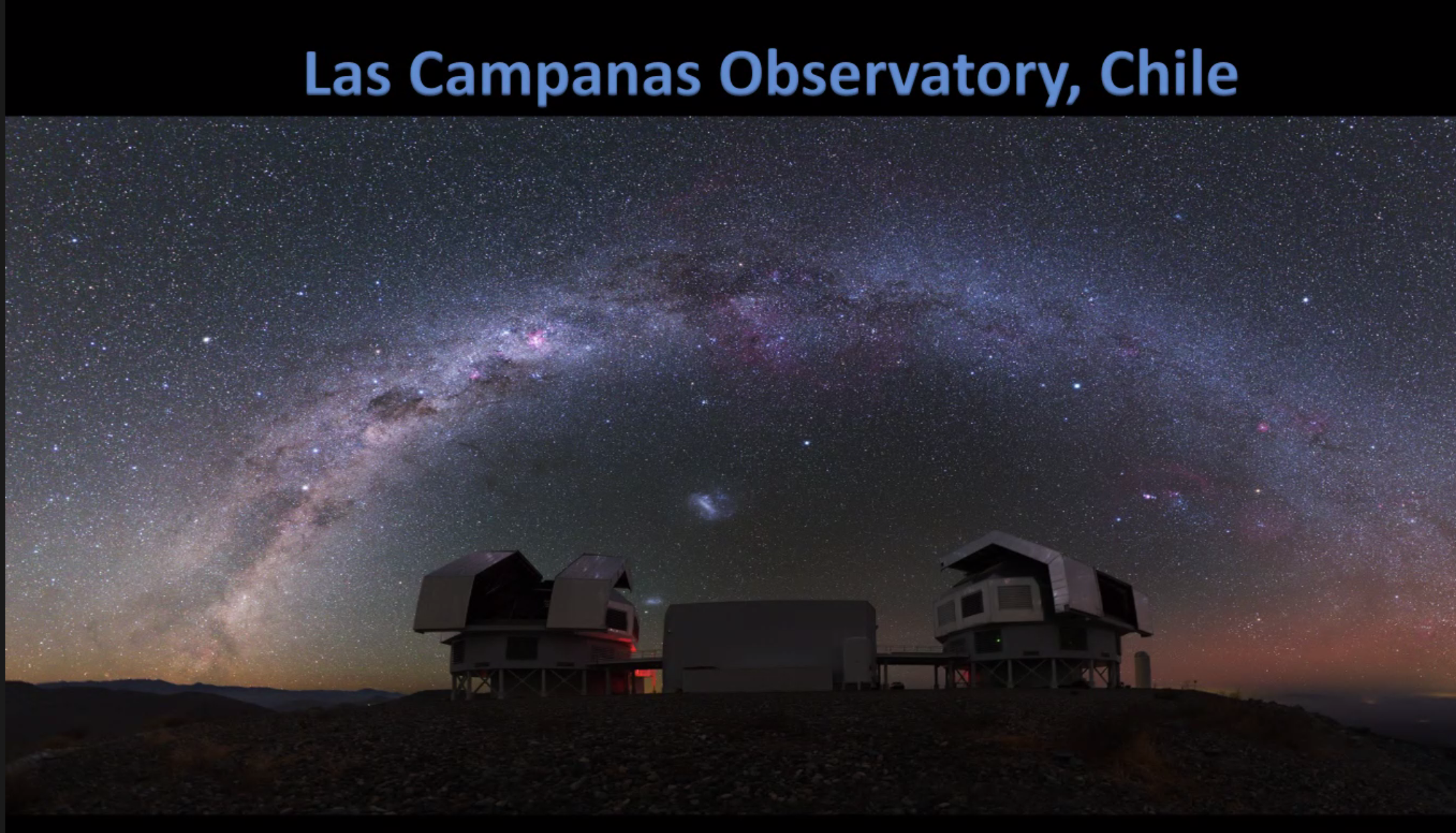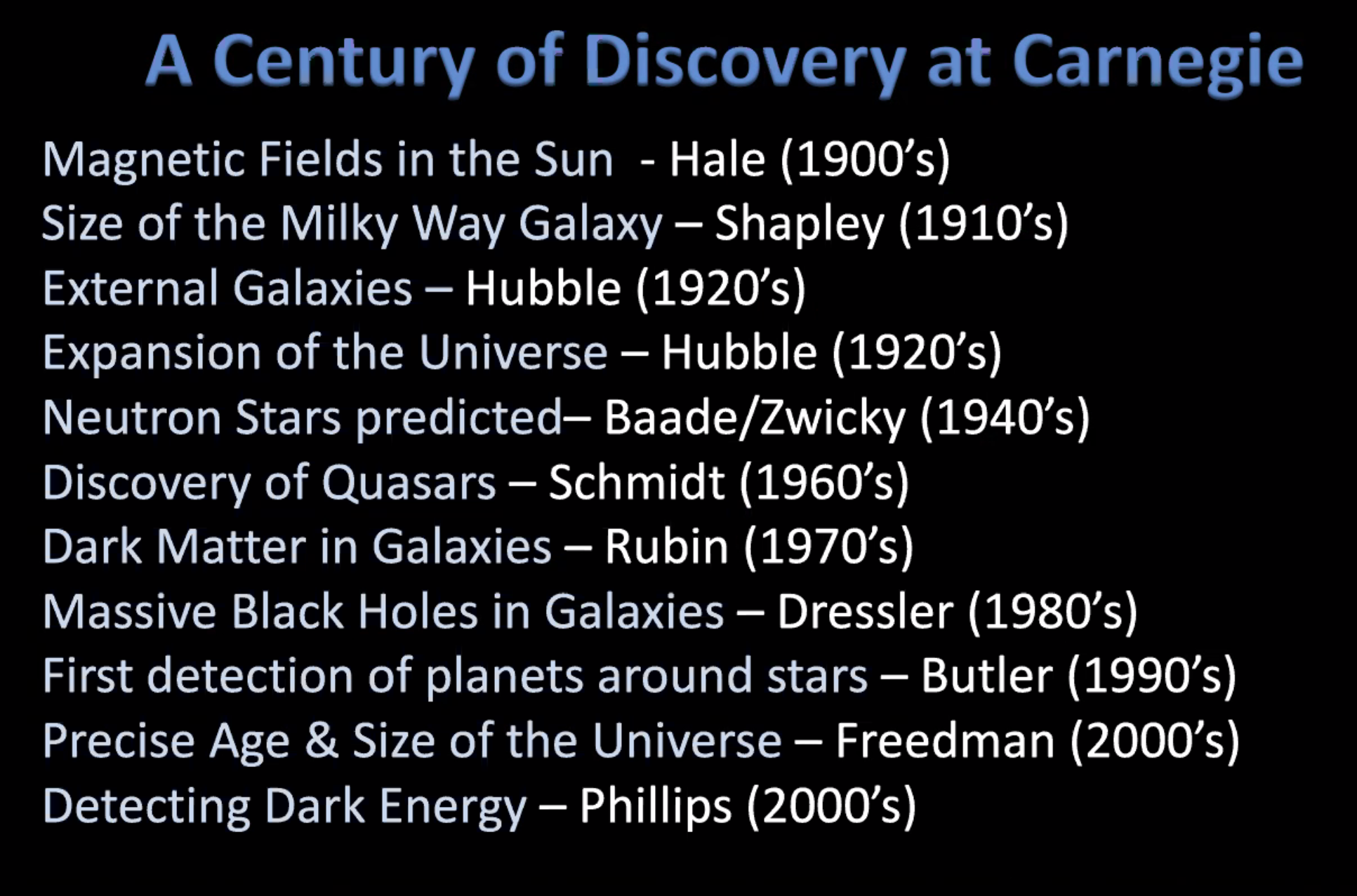
John Mulchaey, director of the Carnegie Observatories in Pasadena, was the guest speaker for the January 18 Pacific Palisades Optimist Club virtual meeting.
One of the first questions that Optimists wanted to know: Did he believe in UFOs?
“I don’t know a single astronomer that has ever seen a UFO,” Mulchaey said, noting that he and his colleagues spend all of their time looking at skies – and if he ever hears of an astronomer who has documented one, perhaps his opinion will change.
“We understand the sky better than everyone,” Mulchaey said. “I believe there is life in the universe. I just don’t believe they have visited us.”
Mulchaey, who received his B.S. in astrophysics from UC Berkeley and his Ph.D. from the University of Maryland, gave a brief history of the Carnegie Institution for Science.
The $22 million seed money came from Andrew Carnegie (1902), who at the time was the richest man in the world. Carnegie partnered with George Ellery Hale, who used the money to build observatories, including the Mt. Wilson 60- and 100-inch telescopes and the Palomar 200-inch (in San Diego County).
“The modern understanding of the universe comes from these three telescopes,” Mulchaey said, noting that because of the telescopes, Edwin Hubble made two important discoveries: 1) showing the universe was much larger than people thought; and 2) that the universe was expanding.
“Einstein was initially hesitant to admit it was expanding, but finally did so in 1931.”
As Southern California became more populated, the night light made it impossible to study the skies, and starting in the 1960s, major telescopes were moved to Las Campanas in Chile, which is one of the driest spots on the earth. “They get less than one inch of rain a year,” Mulchaey said, “It’s clear most of the time, there are no lights, so it’s a great place to do astronomy.”

The downfall is the travel time – about a 24-hour round trip from L.A.
Mulcahey said the skies in the southern hemisphere actually give a better view of the Milky Way. The Magellan telescopes have a 21-foot diameter and are about three times the size of those at Mt. Wilson. A giant Magellan telescope (equivalent of an 80-ft. mirror) is set to go online in 2030.
From observations, astronomers have learned that dark energy is responsible not only for expanding the universe, but also accelerating it. “Dark energy is not understood,” Mulcahey said.
He explained that because of the distances between galaxies, astronomers are essentially looking at the past. “If you look at the sun [not literally], the light one sees left eight minutes ago. We can do the same with every speck of light in the 3,000 galaxies.”
Some are so faint because they are so far—”that light left images 10 billion years ago,” he said. “We can look back in time.”
The James Webb telescope, launched in December, could help us “see the birth of the universe,” Muchaey said, “and see what we are made of [i.e., elements of stars].”
When stars run out of energy, they explode, and the matter spreads out into space and then gravity brings it together and new stars are formed.
That merging of new stars produces gravitational waves and an explosion that is visible by its light.
Mulchaey said astronomers also hope to answer, “Are we alone in the universe?” Astronomers have identified 4843 exoplanets, which are bigger than the earth, but they are rocky like the earth (rather than gaseous).
He was asked several questions by Optimists.
- Why are planets round?
- “That’s the way gravity works.”
- You can look back at the origin of the universe; what do you predict will happen here?
- “In another five million years the sun will die. Gravity is still dominating, but the acceleration of dark energy, which could be trillions of years, could take over.
Asked to explain a bit more, he said “Dark energy is a kind of anti-gravity. We don’t understand why the universe is expanding or how dark energy works. Will it get more powerful and eventually take over gravity?”
- Can we conclude that matter existed in the universe [before the Big Bang Theory]?
- What happened before the Big Bang? Who knows? With humans everything has a beginning and an end. If you believed God created it – I don’t have a better answer.”


FASINATING!!
Sue, very interesting!! Thanks for printing this.